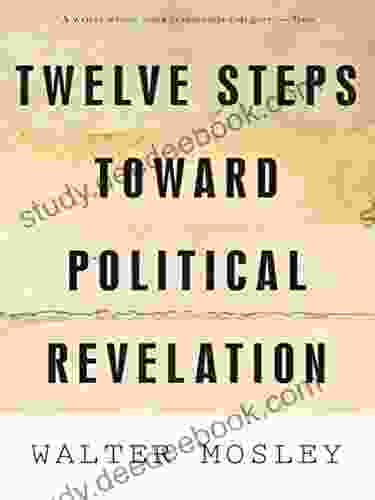Incarcerated Childhood: The Politics of Unchilding

The juvenile justice system in the United States has been criticized for its harsh treatment of young people, particularly those of color. In recent years, there has been a growing movement to reform the system, with a focus on reducing the number of youth who are incarcerated.
One of the most troubling aspects of the juvenile justice system is the way in which it treats children as adults. This is evident in the way that youth are arrested, charged, and tried, as well as the way they are sentenced and confined.
5 out of 5
| Language | : | English |
| File size | : | 1544 KB |
| Text-to-Speech | : | Enabled |
| Screen Reader | : | Supported |
| Enhanced typesetting | : | Enabled |
| Word Wise | : | Enabled |
| Print length | : | 173 pages |
When youth are arrested, they are often treated like adults, even though they are not. They may be handcuffed, placed in police cars, and taken to jail. Once they are in jail, they may be held in adult facilities with adult inmates. This can be a terrifying experience for children, and it can have a lasting impact on their lives.
Youth who are charged with crimes are also treated like adults. They may be charged with adult crimes, even though they are not yet adults. This means that they can face the same penalties as adults, including prison time. In many states, youth can be sentenced to life in prison without the possibility of parole.
The way in which youth are sentenced is also problematic. In many cases, youth are given harsh sentences that are not commensurate with the crimes they have committed. This is especially true for youth of color. For example, a study by the Sentencing Project found that black youth are more likely to be sentenced to prison than white youth for the same crimes.
The conditions in juvenile detention facilities are also often harsh. Youth may be held in overcrowded and unsanitary conditions. They may be subjected to physical and emotional abuse. In some cases, youth have even died in juvenile detention facilities.
The harsh treatment of youth in the juvenile justice system is a violation of their human rights. It is also a violation of their constitutional rights. The United States is a signatory to the United Nations Convention on the Rights of the Child, which guarantees children the right to be treated with dignity and respect. The juvenile justice system in the United States does not meet this standard.
There is a need for transformative change in the juvenile justice system. This change must include a focus on reducing the number of youth who are incarcerated. It must also include a focus on treating youth with dignity and respect. The juvenile justice system must be reformed so that it is truly just and fair for all youth.
The Politics of Unchilding
The harsh treatment of youth in the juvenile justice system is not an accident. It is the result of a deliberate policy of "unchilding" youth. This policy is based on the belief that youth are not capable of making responsible decisions and that they should be treated like adults when they commit crimes.
The policy of unchilding youth has been used to justify a wide range of harsh policies, including the use of adult criminal courts, the imposition of long sentences, and the use of corporal punishment. These policies have had a devastating impact on the lives of youth, particularly youth of color.
The policy of unchilding youth is based on a number of myths and stereotypes. One myth is that youth are inherently violent and dangerous. This myth is used to justify the harsh treatment of youth, even though there is no evidence to support it. In fact, youth are less likely to commit violent crimes than adults.
Another myth is that youth are not capable of making responsible decisions. This myth is used to justify treating youth like adults, even though there is evidence to show that youth are capable of making responsible decisions. In fact, youth are more likely to make responsible decisions when they are given the opportunity to do so.
The policy of unchilding youth is a harmful and unjust policy. It is based on myths and stereotypes, and it has had a devastating impact on the lives of youth, particularly youth of color. It is time to end the policy of unchilding youth and to create a juvenile justice system that is truly just and fair for all youth.
Recommendations for Reform
There are a number of reforms that can be made to the juvenile justice system to make it more just and fair for all youth. These reforms include:
- Reducing the number of youth who are incarcerated
- Treating youth with dignity and respect
- Investing in youth development programs
- Ending the policy of unchilding youth
These reforms are essential to creating a juvenile justice system that is truly just and fair for all youth. It is time to end the failed policies of the past and to create a new system that is based on the principles of dignity, respect, and fairness.
In addition to the reforms listed above, there are a number of other steps that can be taken to improve the juvenile justice system. These steps include:
- Raising the age of juvenile jurisdiction
- Expanding access to diversion programs
- Improving the quality of representation for youth
- Reforming the bail system
- Investing in community-based alternatives to incarceration
These steps will help to create a more just and fair juvenile justice system for all youth.
The juvenile justice system in the United States is in need of transformative change. The harsh treatment of youth in the system is a violation of their human rights and their constitutional rights. It is also a violation of the principles of dignity, respect, and fairness.
The policy of unchilding youth is based on myths and stereotypes. It has had a devastating impact on the lives of youth, particularly youth of color. It is time to end the policy of unchilding youth and to create a juvenile justice system that is truly just and fair for all youth.
The reforms outlined in this paper are essential to creating a more just and fair juvenile justice system. These reforms will help to reduce the number of youth who are incarcerated, treat youth with dignity and respect, and invest in youth development programs. They will also help to end the policy of unchilding youth.
It is time to create a juvenile justice system that is truly just and fair for all youth. We can do this by working together to implement these reforms.
5 out of 5
| Language | : | English |
| File size | : | 1544 KB |
| Text-to-Speech | : | Enabled |
| Screen Reader | : | Supported |
| Enhanced typesetting | : | Enabled |
| Word Wise | : | Enabled |
| Print length | : | 173 pages |
Do you want to contribute by writing guest posts on this blog?
Please contact us and send us a resume of previous articles that you have written.
 Novel
Novel Page
Page Chapter
Chapter Story
Story Reader
Reader Library
Library Paperback
Paperback E-book
E-book Magazine
Magazine Shelf
Shelf Glossary
Glossary Synopsis
Synopsis Annotation
Annotation Footnote
Footnote Scroll
Scroll Tome
Tome Bestseller
Bestseller Classics
Classics Biography
Biography Reference
Reference Dictionary
Dictionary Resolution
Resolution Librarian
Librarian Card Catalog
Card Catalog Archives
Archives Periodicals
Periodicals Research
Research Scholarly
Scholarly Lending
Lending Reserve
Reserve Academic
Academic Journals
Journals Rare Books
Rare Books Interlibrary
Interlibrary Study Group
Study Group Thesis
Thesis Dissertation
Dissertation Storytelling
Storytelling Reading List
Reading List Theory
Theory Robert Howling
Robert Howling Benjamin H Snyder
Benjamin H Snyder Jacob Olivier
Jacob Olivier Claudia Burgoa
Claudia Burgoa Jacqueline Pearce
Jacqueline Pearce Heng Chee Chan
Heng Chee Chan Oliver Optic
Oliver Optic Christeena Burks
Christeena Burks Peter Dixon
Peter Dixon Alexander Buychik
Alexander Buychik Marc D Perry
Marc D Perry Annelise Orleck
Annelise Orleck Ahmet I Aykut
Ahmet I Aykut Ankit Kirar
Ankit Kirar Stephen Calt
Stephen Calt Connor Hoover
Connor Hoover Rafael Aguayo
Rafael Aguayo Timothy Messer Kruse
Timothy Messer Kruse Tim Baker
Tim Baker Mali Gross
Mali Gross
Light bulbAdvertise smarter! Our strategic ad space ensures maximum exposure. Reserve your spot today!

 Hamilton BellThe Library of Analytical Psychology: Unveiling the Depth and Significance of...
Hamilton BellThe Library of Analytical Psychology: Unveiling the Depth and Significance of...
 Isaias BlairFury Godmother Federal Bureau of Magic Cozy Mystery: A Spellbinding Adventure
Isaias BlairFury Godmother Federal Bureau of Magic Cozy Mystery: A Spellbinding Adventure Donald WardFollow ·19.8k
Donald WardFollow ·19.8k Gil TurnerFollow ·8k
Gil TurnerFollow ·8k Juan ButlerFollow ·17.6k
Juan ButlerFollow ·17.6k H.G. WellsFollow ·7.9k
H.G. WellsFollow ·7.9k Albert ReedFollow ·5.3k
Albert ReedFollow ·5.3k Braeden HayesFollow ·10.4k
Braeden HayesFollow ·10.4k Ian MitchellFollow ·5.2k
Ian MitchellFollow ·5.2k Jaden CoxFollow ·4.5k
Jaden CoxFollow ·4.5k

 Dominic Simmons
Dominic SimmonsIcky Island: An Unforgettable Adventure for Kids!
Introducing Icky Island: A Delightful One...

 Carlos Fuentes
Carlos FuentesThe Midnight Breed: Embracing the Shadows and Unlocking a...
Welcome to the captivating world of...

 Ike Bell
Ike BellTwelve Steps Toward Political Revelation: A Path to...
Politics, often perceived as a complex and...

 Cameron Reed
Cameron ReedTravels in Arizona Goldfield: Unraveling the Threads of...
Nestled amidst the rugged...

 John Grisham
John GrishamFlashpoints of Cinema History and Queer Politics:...
The relationship between cinema history and...
5 out of 5
| Language | : | English |
| File size | : | 1544 KB |
| Text-to-Speech | : | Enabled |
| Screen Reader | : | Supported |
| Enhanced typesetting | : | Enabled |
| Word Wise | : | Enabled |
| Print length | : | 173 pages |










